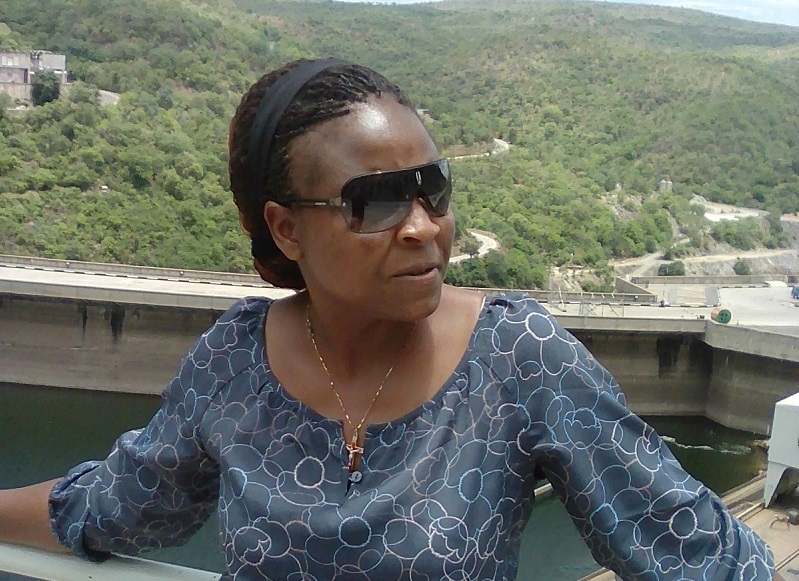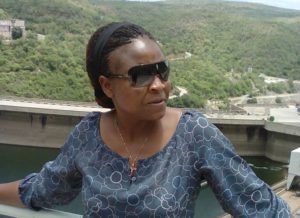How young people are speaking up: A lesson from Zimbabwe


Nyarai Mutongwiza works with local partners in Zimbabwe to help young people use story-telling to get their voices heard. She reflects on how we can all speak up to influence decision-makers.
In every culture, stories are regarded as crucial. When I grew up, during evenings sitting around the fire, elders would begin: “Once upon a time…” and the story would go on.
These stories were fairy tales, but at the end of each session, the elders would each take a moment to reflect on the emotions in the story and the lessons learned.
Through this I began to understand that stories could bring a group together – evoking in every person sitting round that fire certain emotions, and sometimes tears.
Make your voice heard with CAFOD during this election period
The intrinsic value of storytelling in Zimbabwe is indisputable. In Chinhoyi Diocese in the north of Zimbabwe, a young person requested a meeting with village heads, so he could tell them this:
“I am 27 years old, married and a father of two. It is recognised that I am a family man. When my children go past lunch without anything to eat, my parents reprimand me and remind me that I am grown up and should provide for my family.
“Just after the birth of my second born, we got our own kitchen; as is the custom. It symbolises that I am now weaned from my parents’ support. This is good for us as a family. But I sit in that very kitchen and wonder – ‘Yes, I am grown up. Yes, I have to provide for this family. But how?’ Where I should start remains a challenge.
“When community development meetings happen, it is for the elders to attend. The youth are directionless. We stand hopeless and alienated as citizens of this land. How are our concerns going to be met if we are cut off from decision making?”
Young people cut off from decision-making
This young man’s story is common. Youth marginalisation remains a problem across Zimbabwe. Exacerbated by limited formal employment, youth feel hopeless and alienated from the real world. They often turn to drugs and alcohol to help them cope.
With the national economy collapsing, tension rises, leading to an increase in violence among young people and towards the elders in their communities. This further alienates young people from decision making processes because the community leaders label them as ‘deviants’.
In the UK too, we see that younger people often feel detached from how political decisions are made. In the 2015 general election, only 43% of 18-24 year olds voted, compared to 78% of over 65s.
This general election, CAFOD is encouraging people of all ages to speak out about the issues they care about and challenge their parliamentary candidates to show their commitment to tackling global poverty and climate change.
Take action now: Email your general election candidates
Breaking down barriers to change
In Zimbabwe, CAFOD partner, the Catholic Commission of Chinhoyi Diocese is using storytelling to influence youth participation in local decision making processes. The project aims to reach 30,000 young people in the Diocese.
Core groups have been established in each parish who will create platforms where young people can present their stories to community leaders, and communicate the important role youth can play if they are allowed to participate in decision-making forums.
The project captures and presents stories that shed light on what is wrong with the present situation, establishing the need for change and creating a vision for the future.
Sometimes a story comes along and punches you in the gut. This is exactly what is happening in Chinhoyi Diocese. In one community, after hearing stories from young people, local leaders immediately reacted by appointing a youth representative in the development committee. Barriers of communication between the leaders and the young people are breaking down.
The young people are sharing their thoughts and feelings in a manner that enlightens the elders and connects them to the reality and problems that youth face as a result of not being active in decision making. Through the approach, young people have been empowered to recognise their expertise in making their ideas accessible and creating empathy on issues that affect them.
Take action now: Email your general election candidates
Tell your story to transform the world
In every moment of every day we are either telling or listening to stories. We all have a hundred stories to tell, like these young people in Chinhoyi.
In all instances, whether in a meeting with a decision maker in your community, lobbying your MP, or simply speaking to a friend, the story allows your listener to see the problem from a different lens. You may feel you do not have a good story to tell, but your message may provoke debate and that is the beginning of change.
Join the Speak Up week of action in July to meet your newly-elected MP
What do you care about? What stories do you have to tell? Go on, tell a story, trigger empathy and change perceptions. You will be on the road to transforming the world!